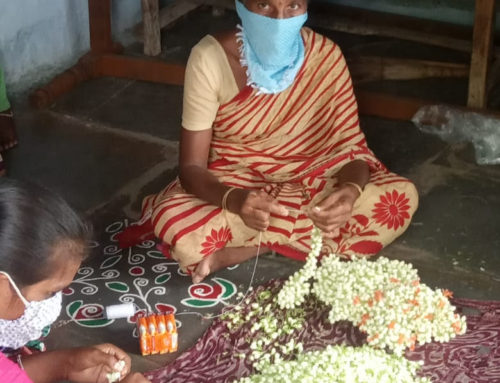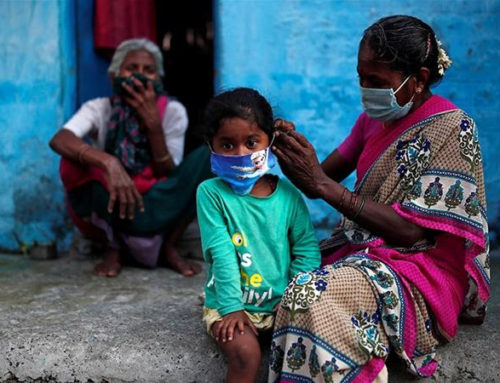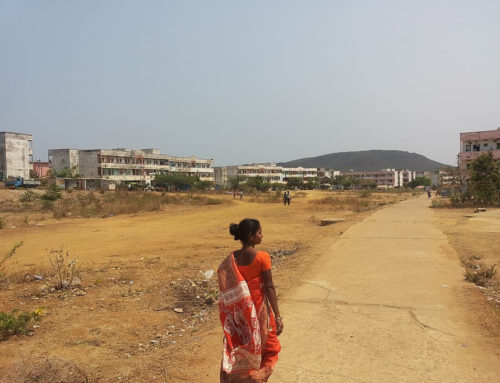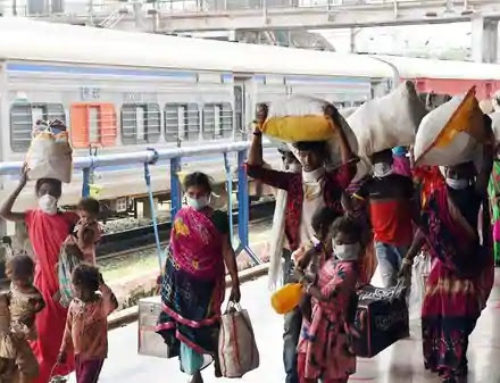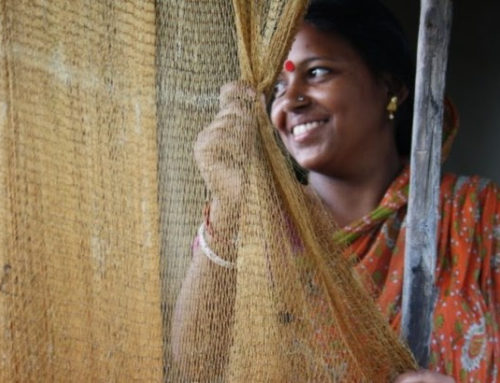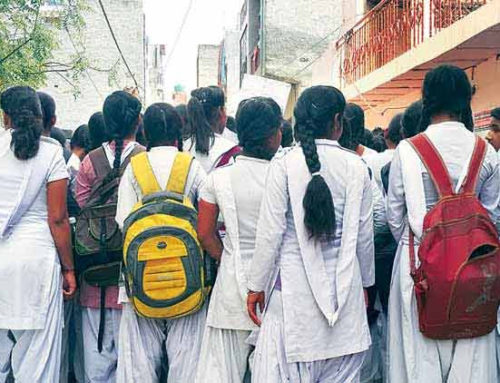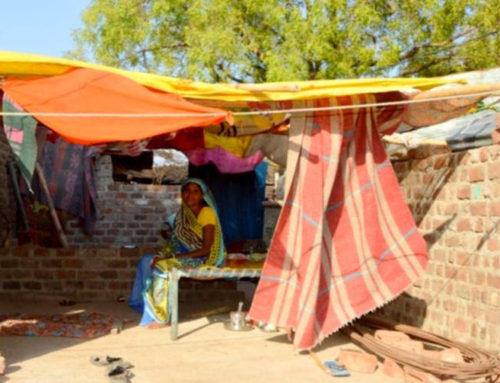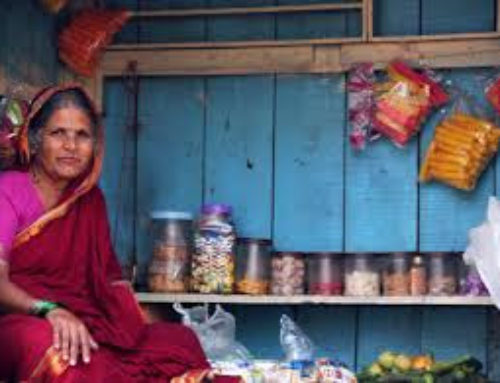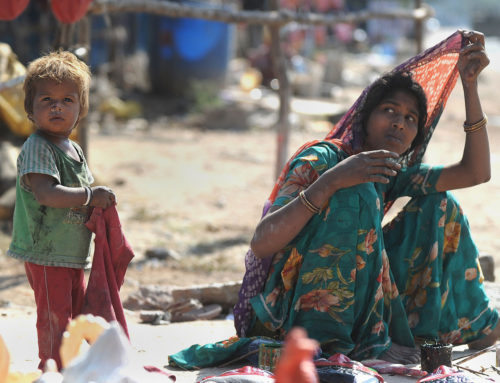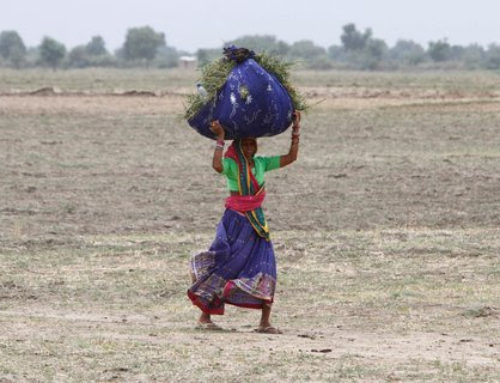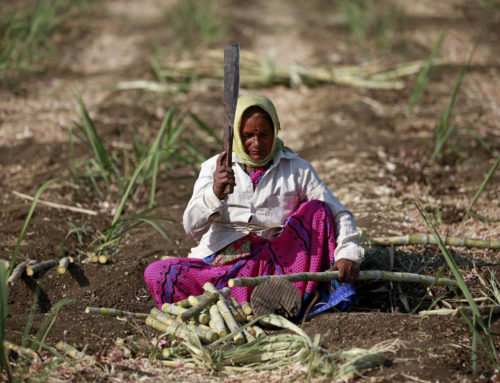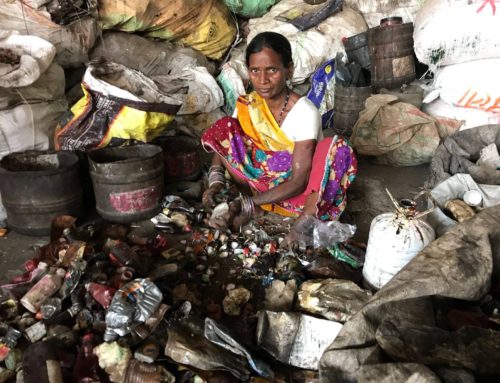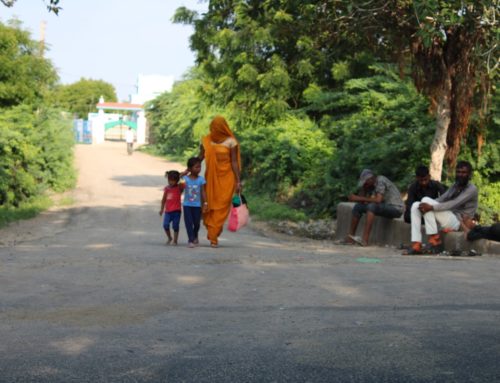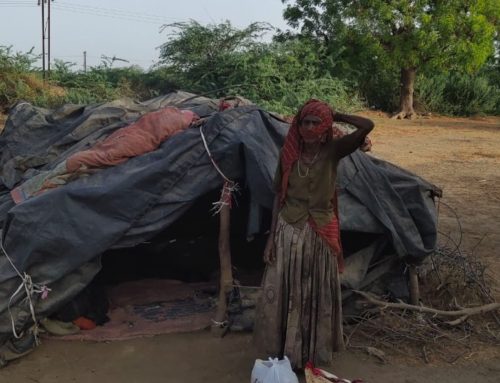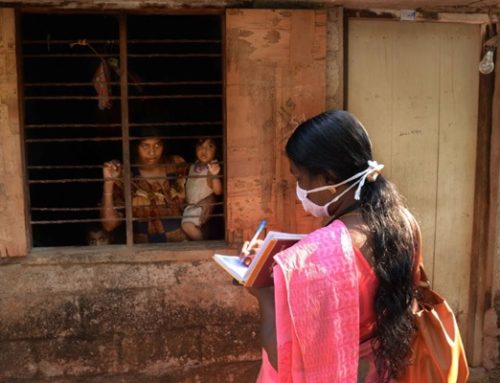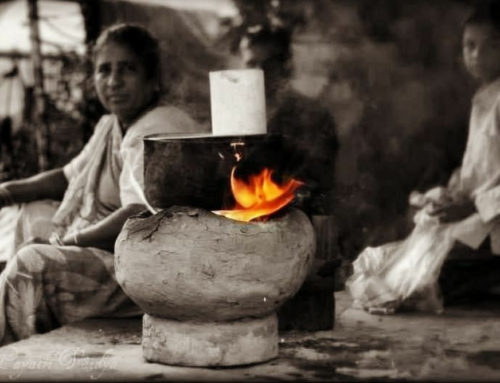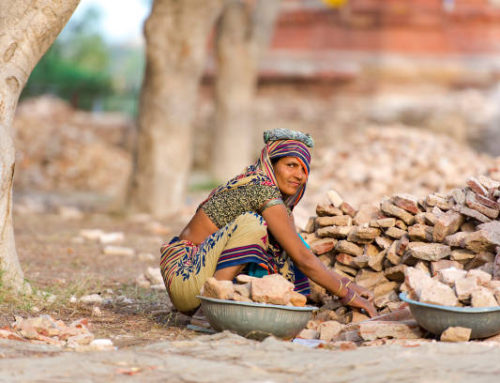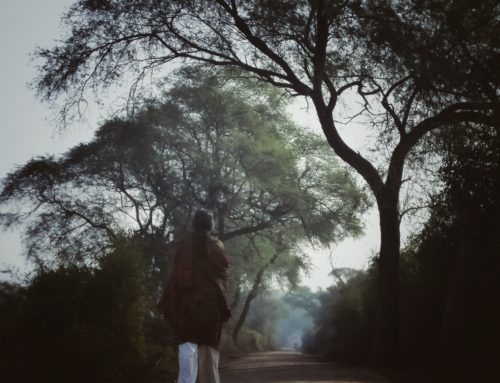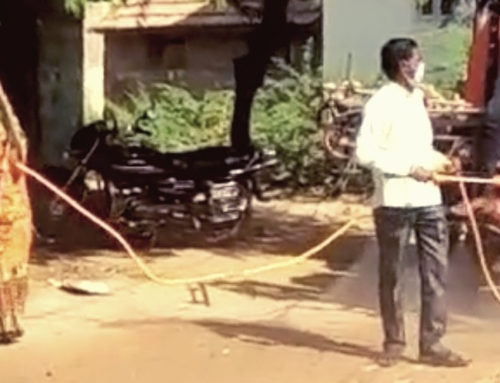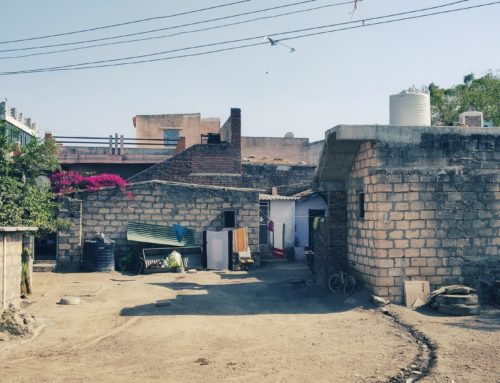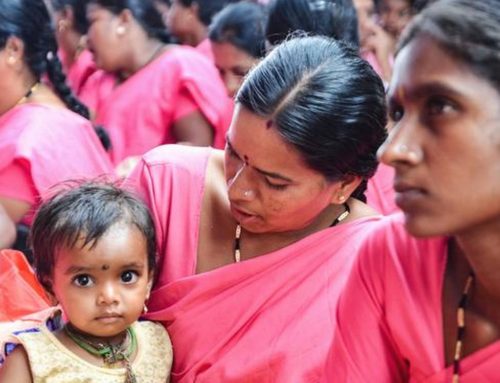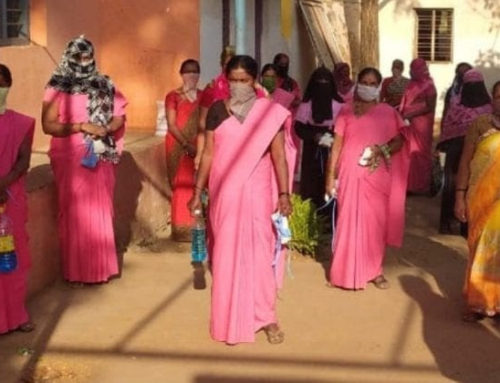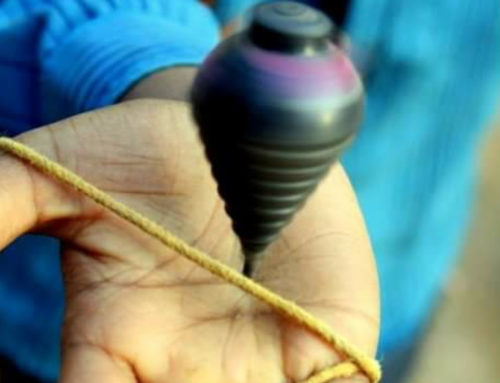The empty village streets have started to fill up with people, shops are slowly coming back into business, farming season is looking possible and other work is falling back on track too. With lockdown lifting, life is looking a little less grim for some in the small village of Bajana, Gujarat, but not for Nafisa and her family of 6. Nafisa stays on rent in her semi-pucca house with her husband, 90 year old mother-in-law and three children. Her one-room house serves as a residence for her family and doubles up as a space Nafisa uses to run a shop of cosmetics for the women in the village. She is also a beautician and a make-up artist for weddings in the village – a job that gets her a steady income of Rs. 10,000 a month averaging out the non-wedding months.
Her husband is an artist too. He is a musician and has a band. Marriage season is big for the band because most of their money comes from performing at weddings. They also pick up gigs at festivals and other cultural events within and outside of their village and district. Between these different assignments, Nafisa’s husband gets work for close to 8 months in a year – the four months of monsoon are a little slack when he sits at home and sharpens his skills for next season. Between the two of them, the family had a decent income flow and a standard of living a little above that of others in the village.
The pandemic, however, has left the couple completely jobless. Fifteen thousand weddings got cancelled in the district including a lot of them that had employed Nafisa and her husband. They were so strapped for money that Nafisa had to take up work as an agricultural labourer which also she got only for 12-15 days during these past 3 months. For a 12 hour work day,Nafisa was getting a wage of 100-130 Rs. – which is much lower than what she makes otherwise.
Not used to farm work, her husband was unable to get any kind of livelihood throughout these 3 months which left the family wanting for money. Apart from Nafisa taking on hard, physical labour, the family also had to cut down drastically on food. They stopped eating meat completely, had to sell their bike to pay off old loans and to provide food for the family. Since they have an APL card, the government allotted ration was not enough to feed a family of 6 – they received 5kg wheat and 3kg rice each month – for which also they had to make multiple rounds to the ration shop.
The family has stopped eating vegetables and eggs – surviving on pulses. With everything getting more expensive, they have also steered clear from fruits like mango and have not been able to get milk for their children because of lack of funds. On the days that Nafisa was working the fields, she would clock in long hours and then get back home to finish her housework. She said that those days left her weary because her house chores wouldn’t get over before midnight and she couldn’t get enough sleep.
With all businesses slowly picking up, theirs seems to have an uncertain prospect. As large gatherings seem impossible in the near or distant future, the future of Nafisa and her husband seems bleak. They might have to rethink it with new skills – something they might not have thought of when they spend years honing their art.
Case Study reported by: SWATI Team
Location: Gujarat


